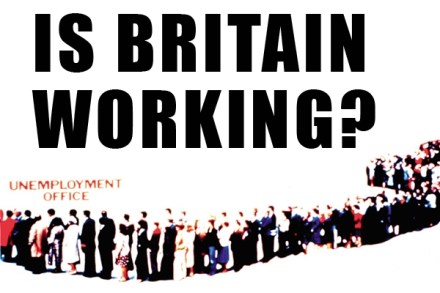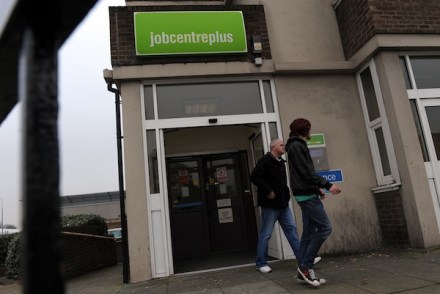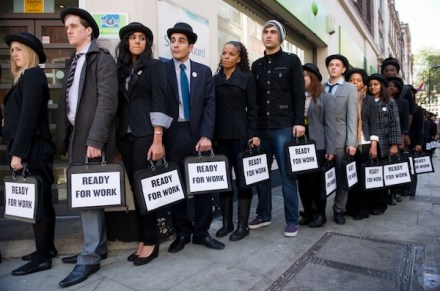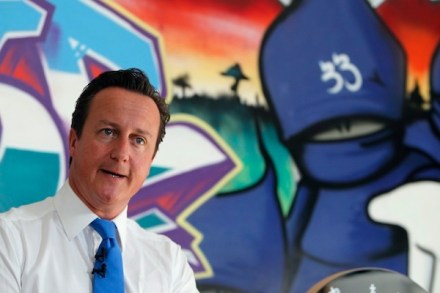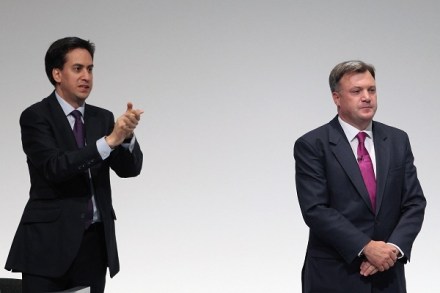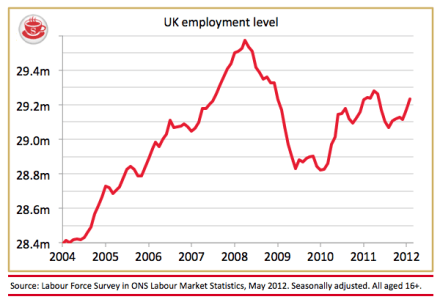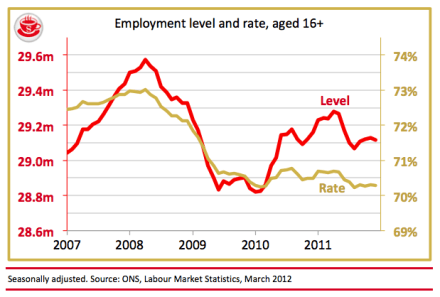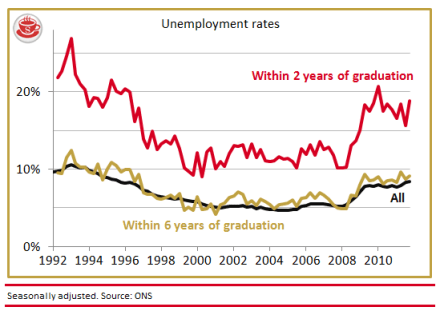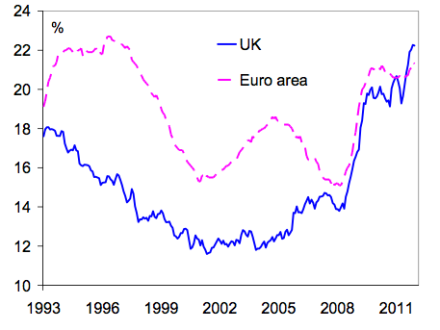Employment has recovered from the recession, but wages haven’t
Today’s employment figures don’t contain much new to shout about. The number of people in work — although it rose by 100,000 on the previous quarter — is actually down very slightly from last month’s record high (but still above the pre-recession peak, just). Unemployment fell by 49,000 from Q2 to Q3, although that’s well within the Labour Force Survey’s margin of error (so we can’t be certain that it fell at all). The best news in today’s figures — from the government’s point of view — is probably that the headline unemployment rate is now 7.8 per cent, very slightly below the 7.9 per cent rate when the coalition




